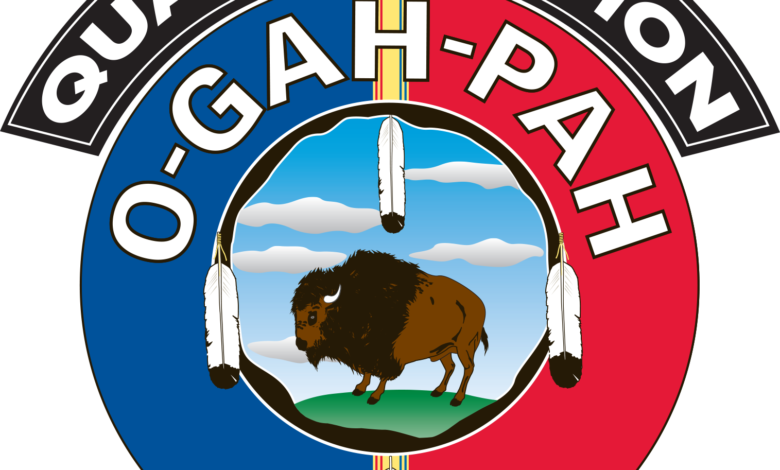Quapaw Nation’s first responder pension plan

QUAPAW, Oklahoma – The Quapaw Nation approved a first-of-its-kind pension plan for first responders in Indian Country during May’s monthly Business Committee meeting. The new defined benefits plan matches or rivals the pension plans of other emergency personnel in the state of Oklahoma. This helps the Quapaw Nation remain competitive in recruiting and retaining first responders in an industry that, like others, has struggled to maintain proper staffing levels. Staying competitive in recruiting first responders and emergency personnel helps keeps all Ottawa County citizens safer. The plan was approved by the Business Committee, 6-0.
“The Quapaw Nation continues to take a greater role in public safety and serve all Ottawa County citizens,” said Quapaw Nation Business Committee Chairman Joseph Tali Byrd. “Our expanded criminal jurisdiction and cross-deputization agreements are going smoothly, and soon, we’ll assume management of the new Ottawa County Emergency Operations Center, which houses the county’s 911 dispatchers. We touch so many aspects of people’s lives, so it’s imperative we have the tools to keep everyone across Ottawa County safe, whether or not they’re Native American. And in a rural area with backroads and terrain like Ottawa County, response times are crucial, which means recruiting EMS professionals is crucial. So providing a pension is an important and necessary part of our public safety plan.”
A pension for Quapaw Nation Department of Public Safety employees is unique in Indian Country and results from years of work led by Business Committee member and licensed paramedic Zack Turley. Turley is also a longtime employee of the Quapaw Nation’s Department of Public Safety.
“I’m licensed in fire/rescue, emergency management and other aspects of public safety, and have proudly served the Quapaw Nation Fire and EMS programs for nearly 15 years. Our department has made incredible gains over the years, but a pension program was critical to remain competitive with other departments,” Turley said. “For years, we tried to get our tribal public safety personnel into the same pension system as other public EMS employees in Oklahoma, but we came across legislative roadblock after roadblock with state lawmakers. Ultimately, the Quapaw Nation decided that building our own pension plan was more logical and productive. I’m proud we created a plan that works for our employees and is an attractive recruiting tool. I’m grateful my colleagues and I were able to work together to make this happen.”
Quapaw Nation Department of Public Safety employees eligible for the pension program includes those in the Fire, EMS, Marshal Service and Emergency Management Groups. In many ways, the plan’s basic structure mirrors the most popular features of the Oklahoma Firefighters Pension & Retirement System plan (“OKFPRS”). Full retirement is open to those 50 and older who have 20 years of credited service. Other factors also make an employee eligible for retirement. Existing employees will receive a full briefing on the new plan, but supervisors and human resources employees are available for questions. Additionally, existing 401(k) plans are eligible for transfer to a privately managed retirement plan.
“Being the first tribe to develop this type of qualified benefits plan was a strenuous process,” Turley said. “We spent a year-and-a-half working on this, but it was worth it. We now have a pension plan that is fully competitive with state and federal agencies.”
As the Quapaw Nation continues to expand its footprint in northeast Oklahoma, Chairman Byrd says he sees this as another way to help other tribes, no matter where they are.
“Our hope is this will be a roadmap for other tribes in Indian Country to adopt public safety employee pension plans,” Byrd said. “It’s one more way to exercise tribal sovereignty by caring for our own people and our non-Native neighbors, just as we have for hundreds of years.”



